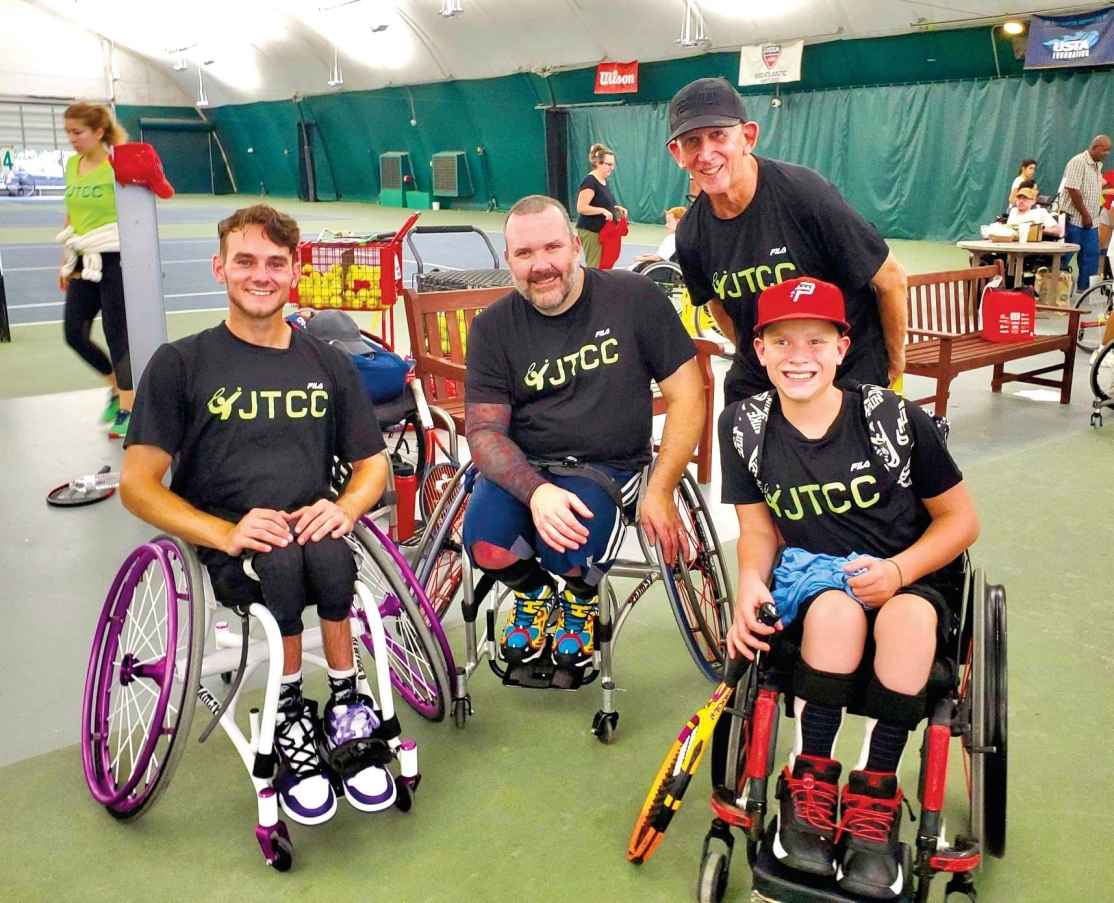he Para Standing Tennis/Adaptive Tennis is a novel category of the tennis spectrum. Primarily, the program at JTCC (Junior Tennis Champions Center) focuses upon the development of the physically challenged individual in the game of tennis, so that the player can feel more confident and expand their physical and cognitive abilities. In turn they may be able to integrate better into mainstream society, as they realize their inherent potential to meet their challenges.
The Wheelchair and Para Standing tennis pro-gram at JTCC is directed by Gabby Hesse and assisted by Karl Lee. There are weekly clinics for each program and all equipment and court times are provided by the club. In each session, a warm up activity engages the player in tennis-based movements and will develop the awareness of the mobility requirements to interact with a ball in space.
Certain themes are utilized by the coaches and the volunteers to create a progression of learning, such as mobility, recovery, direction control, stroke path, serve/ returns, match play, and anticipation/shot analysis. Towards the end of the sessions, game play is encouraged so that the players may implement what they have learned.
“RECIPROCAL MENTORSHIP HAPPENS WHEN COACHES TEACH THE GAME OF TENNIS, AND THE PLAYERS EDUCATE THE COACHES REGARDING THEIR INDIVIDUAL CONDITIONS.”
The range of physical disabilities can be quite varied. Many of the individual experience different types of conditions, such as: limb loss with balance control issues, or visual tracking deficits combined with movement control. The coaches are trained to analyze before implementing corrections, the individual’s range of movement, cognition, physiology, etc. The aspects of learning are based upon reciprocal mentorship, in which the coaches teach the game of tennis, and the players educate the coaches regarding their individual conditions. In some of the players who have experienced semi paralysis of one side of their body, it may be necessary to develop the previously “non dominant” side for the tennis stroke. Given the circumstances, many times the players are surprised that their systems can compensate for the change and will have some semblance of success in striking and directing the ball.
Change will not be dramatic, but rather will happen in small but memorable increments. One of the players who suffered from a brain abscess developed divergent vision and a loss of balance. His training began in close proximity to the coaches, as they drop fed him balls to his right and left to create a successful interaction with
ADVANTAGE IN: Members of the All-Comers Wheelchair Tennis Club prepare for practice; (Opposite page) Standing adaptive tennis players between sets at a JTCC event at the Hangar Clinic.
